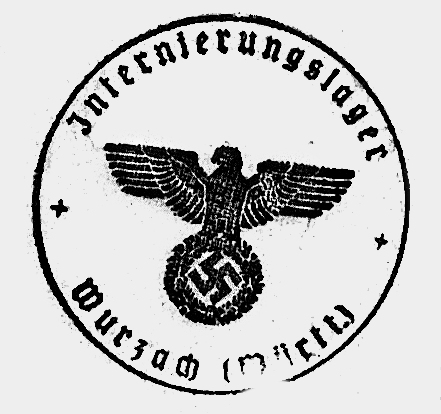 |
 |
|
|
| |||||||||||||||||||||||||||||||||||||||||||||||||||||||||||||||||||||||||
| english | deutsch | |||||||||||||||||||||||||||||||||||||||||||||||||||||||||||||||||||||||||
| Civilian Internees from Jersey | ||||||||||||||||||||||||||||||||||||||||||||||||||||||||||||||||||||||||||
|
On 30th October 1942, a large group of civilian prisoners - some 600 men, women and children - were transferred from the Lindele camp in Biberach to the former prisoner-of-war Oflag VC (Oflag = Offizierslager = Officers camp) based in the Wurzach Castle, from the island of Jersey in the British Isles. Victor Hugo described the Channel Islands as bits of rock which had fallen away from France and had been picked up by England, and indeed, the Normandy influence can still be felt today throughout the islands. The islands, which lie off the Normandy coast, were occupied in 1940 during the final push of the 1940 campaign in France and the occupying forces remained there until 9th May 1945, the only British territory to be occupied by the German armed forces. | ||||||||||||||||||||||||||||||||||||||||||||||||||||||||||||||||||||||||||
|
This conquest carried considerable war propaganda value due to the fact that the Islands were the only part of Great Britain to be occupied by German troops during the whole of the war. Although the islands held no military significance, in the summer of 1941 huge efforts were made to turn the islands into impregnable fortresses. Within the context of the German military administration, they came under the North French Département de la Manche. During the initial phase of the occupation, considerable value was placed on how the troops interacted with the local people. Therefore it was with horror that on 15th September 1942, the islands inhabitants read notices in the local newspapers in Guernsey and Jersey about the pending deportations. The people who were to be deported knew nothing behind the reasons for their internment. The Field Commandant charged with carrying out the deportation order was only able to tell them that the order came directly from Hitler himself. On his direct orders, a total of more than 2,000 civilians - men, women and children - were to be deported to the German Reich as a direct result of German nationals being interned in Iran. They were to be held prisoners until the end of the war even though the many authorities involved were unable to make any sense of the action. Many of those deportees had less than 12 hours to get themselves ready for the first transportations, which were to be carried out on 16th September. Large numbers of friends went to see the families off when news of the transportations was received and on the following two transportations on 18th and 29th September 1942 and again during the second phase of the deportations in February 1943. Their transport to Germany, compared to the millions of other poor souls, was under much better conditions, namely in Class 2 carriages. Of course, no one knew where the journey would end. One large group arrived in Oflag VI Dorsten, south west of Münster in Westphalia; another group went to the Internment camp Lindele in Biberach. Unmarried men and older sons were then transferred to the male camp Laufen in Upper Bavaria, some of the women to Liebenau. The camp in Biberach was deemed to be too small for such a large number of internees so ultimately, the Wurzach Schloss was taken over as an additional camp for 618 internees. All the former internees agree that the general state of the Schloss upon their arrival was one of complete dilapidation, which meant that for the first few days, they had to turn the old building into habitable quarters. | ||||||||||||||||||||||||||||||||||||||||||||||||||||||||||||||||||||||||||
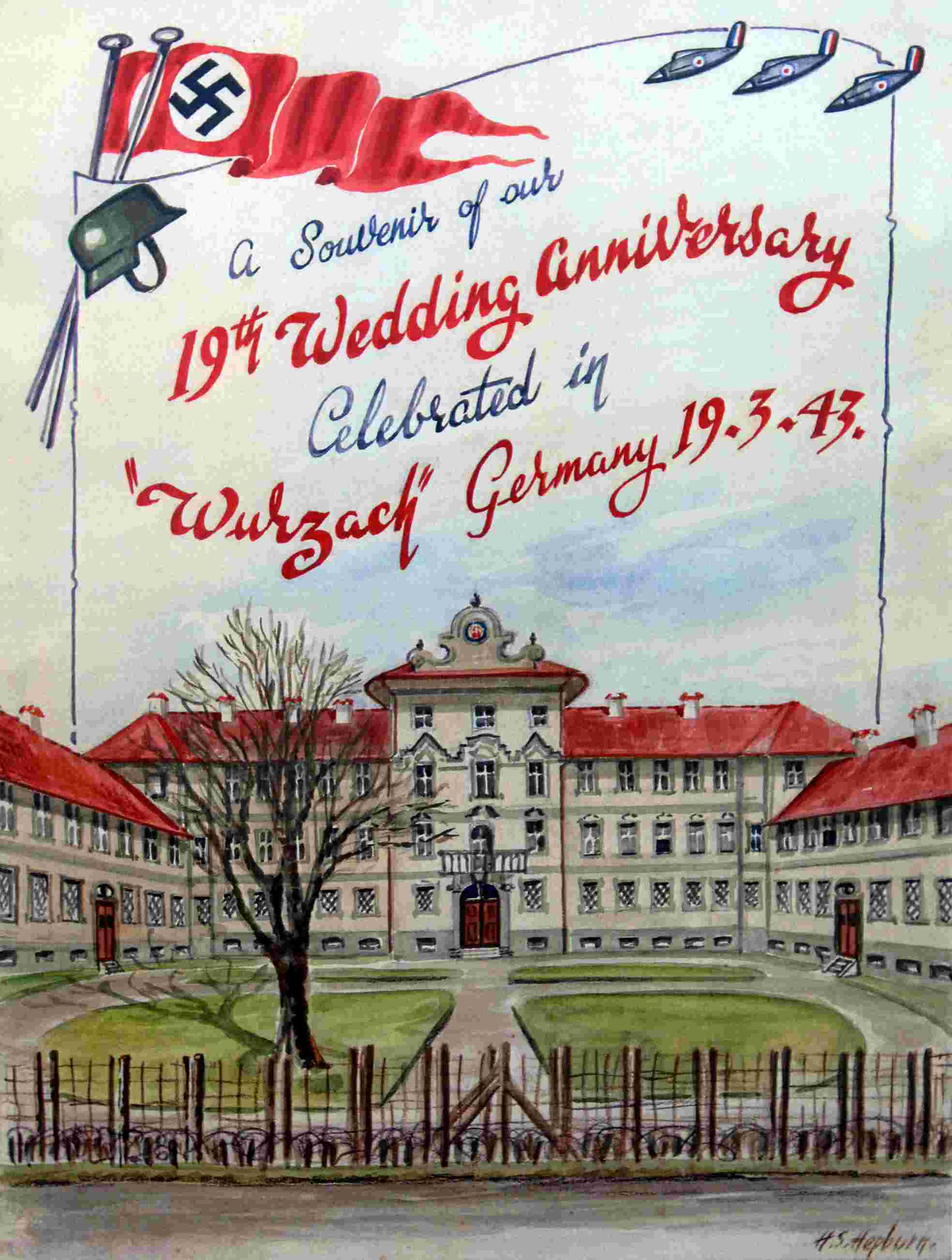 |
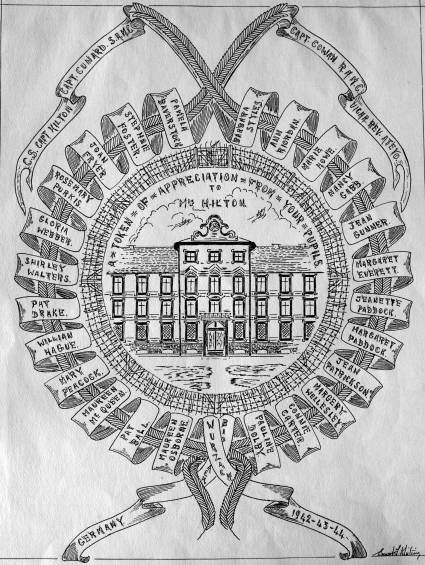 | |||||||||||||||||||||||||||||||||||||||||||||||||||||||||||||||||||||||||
|
The Wurzach Schloss was never a concentration camp and there were no SS units deployed although all decisions concerning the internment camp were in the hands of the SS-Reichsführer (highest rank of the SS) and the Head of the German Police with the Ministry of the Interior. The German Foreign Ministry, the Ministry of the Interior of Württemberg, the Prisoner of War Department of the Oberkommando der Wehrmacht (the High Command of the Armed Forces) and the Foreign Interest Section of the Swiss Legation in Berlin all played a central role in the destiny of the internees. The consequences of the national socialistic polycractic system were almost ideal-typical whereby different authorities pursued varying, and quite often, opposing interests. The central directives usually came from the Reich's Security Main Office based in Berlin. When the first internees arrived at the Schloss, the Wehrmacht was still responsible for the administration of the camp, but already on 1st December 1942, was taken over by the Württemberg Ministry of the Interior. The guard units of the Wehrmacht were withdrawn and replaced by the policemen of the guard battalion of the municipal police from Ravensburg. The Camp Commandant was the Chief and later, Lieutenant of the Police Force, Martin Riedesser, who was nicknamed "George" by the internees. From the beginning, the prisoners were placed under the protection of the international monitoring bodies, namely representatives from the Swiss Protecting Powers and the aid organisations such as the International Red Cross or the War Prisoners Aid of the YMCA who had access to the camps and provided humanitarian aid. | ||||||||||||||||||||||||||||||||||||||||||||||||||||||||||||||||||||||||||
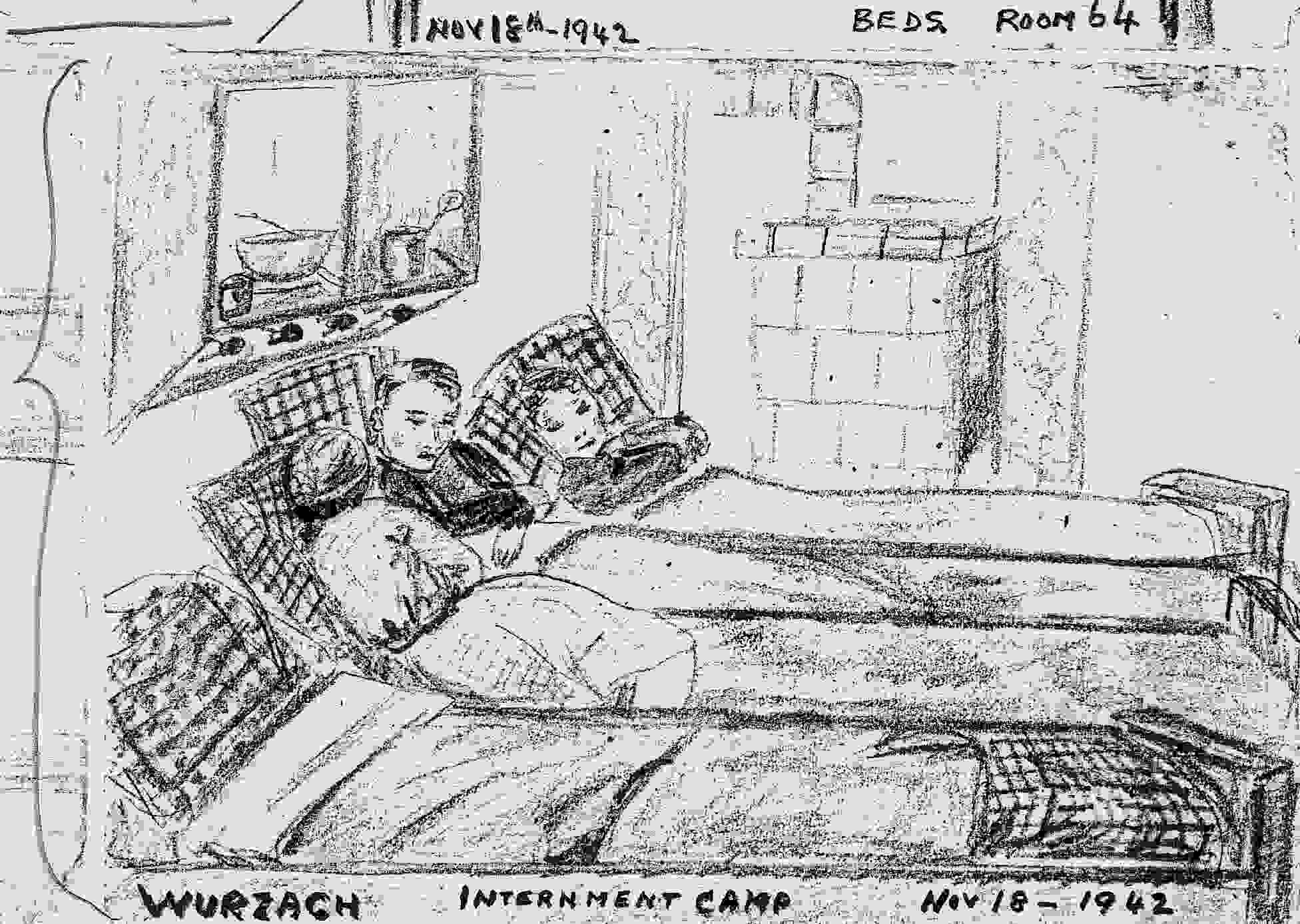 |
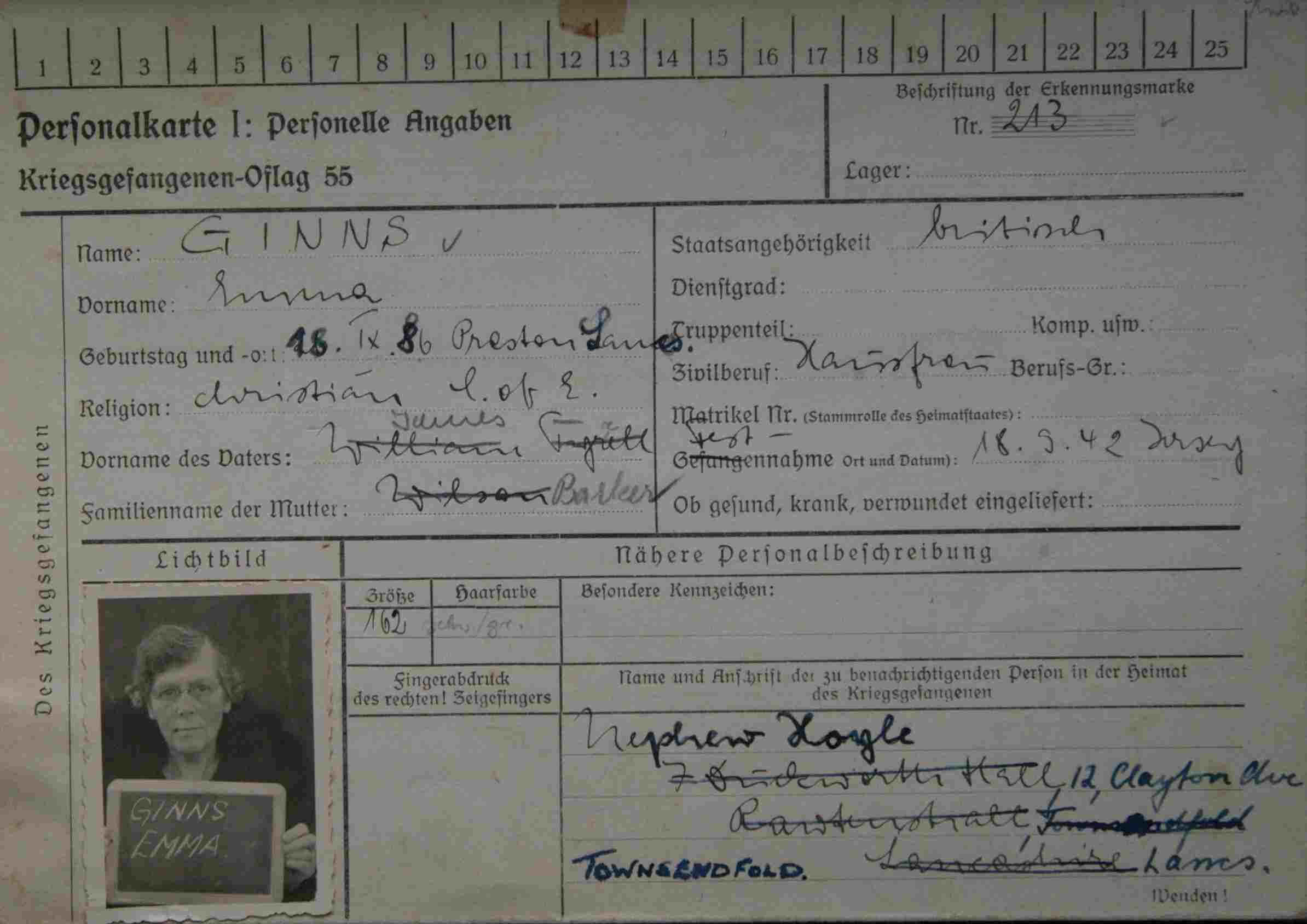 | |||||||||||||||||||||||||||||||||||||||||||||||||||||||||||||||||||||||||
|
Thanks to these aid organisations, the internees fared better, after the initial difficulties in accessing supplies, and in many respects were better provided for than the inhabitants of Wurzach, which gave way to forbidden, but frequent bartering - chocolates or cigarettes exchanged for fresh vegetables or meat. Human contact was made possible under the close supervision of the guards during the walks, and some elderly inhabitants of Wurzach clearly remember as children being given a piece of chocolate or biscuit. Two groups of civilian internees were repatriated before the end of the war, i.e. were permitted to return to Great Britain on the grounds of ill health- however they were unable to return to Jersey because of the continuing occupation. On 28th April 1945, Wurzach was occupied by French troops who knew nothing about the existence of the internment camp. Local inhabitants now cautiously set aside the tank barriers, which had been erected in Wurzach at the main entry points, so the town could be occupied without any fighting. |
 | |||||||||||||||||||||||||||||||||||||||||||||||||||||||||||||||||||||||||
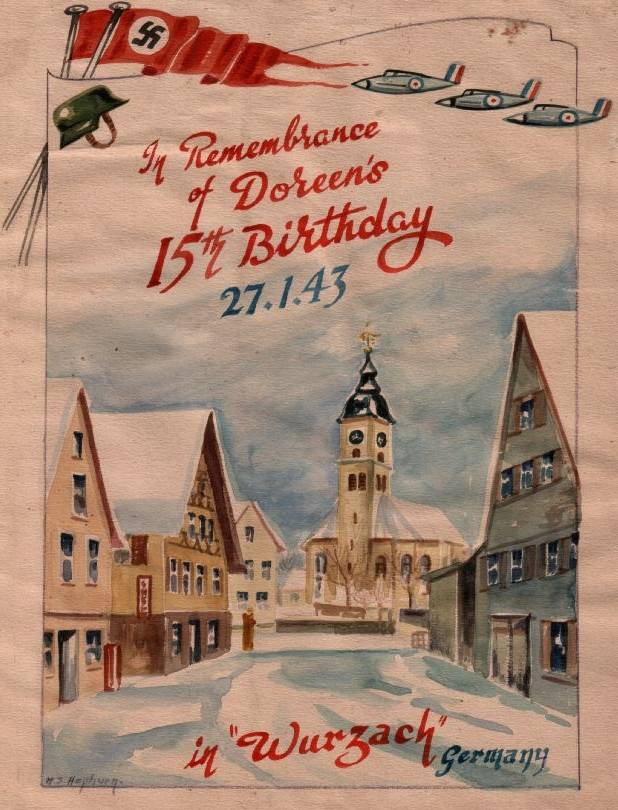 | ||||||||||||||||||||||||||||||||||||||||||||||||||||||||||||||||||||||||||
|
The internees rejoiced to see the French soldiers who tore down the barbed wire. Everyone remembers these scenes well, especially the French officer who greeted them at the opened doors with "Vous êtes libres" (You are free). The deputy English Camp Captain, Frank Ray, was named as the provisional mayor and many elderly people of Wurzach are today convinced that thanks to his actions during those first days and weeks, there were no acts of violence against the local population. However the internees from Jersey had to wait several weeks before they could start heading towards home and it was in early June that they were brought to the airfield Mengen by French military lorries and were then flown to the British military airfield, Hendon, near London. | ||||||||||||||||||||||||||||||||||||||||||||||||||||||||||||||||||||||||||
| Already just a few years after the war, former internees began returning to Wurzach and visited families who had befriended them during their period of internment. These contacts were further developed over the years and lead ultimately in 2002 to the official twinning between St Helier in Jersey and Bad Wurzach. | ||||||||||||||||||||||||||||||||||||||||||||||||||||||||||||||||||||||||||
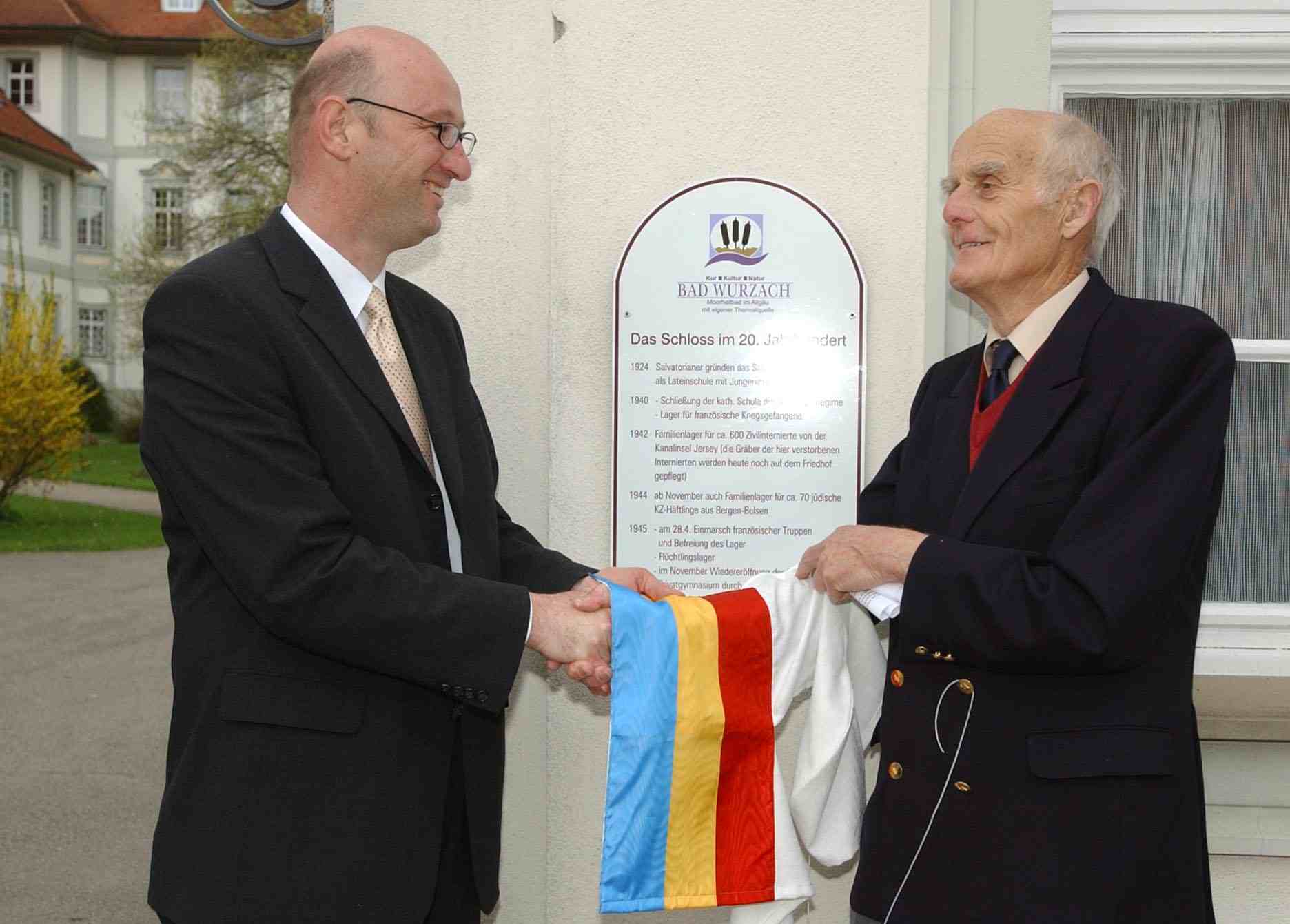 |
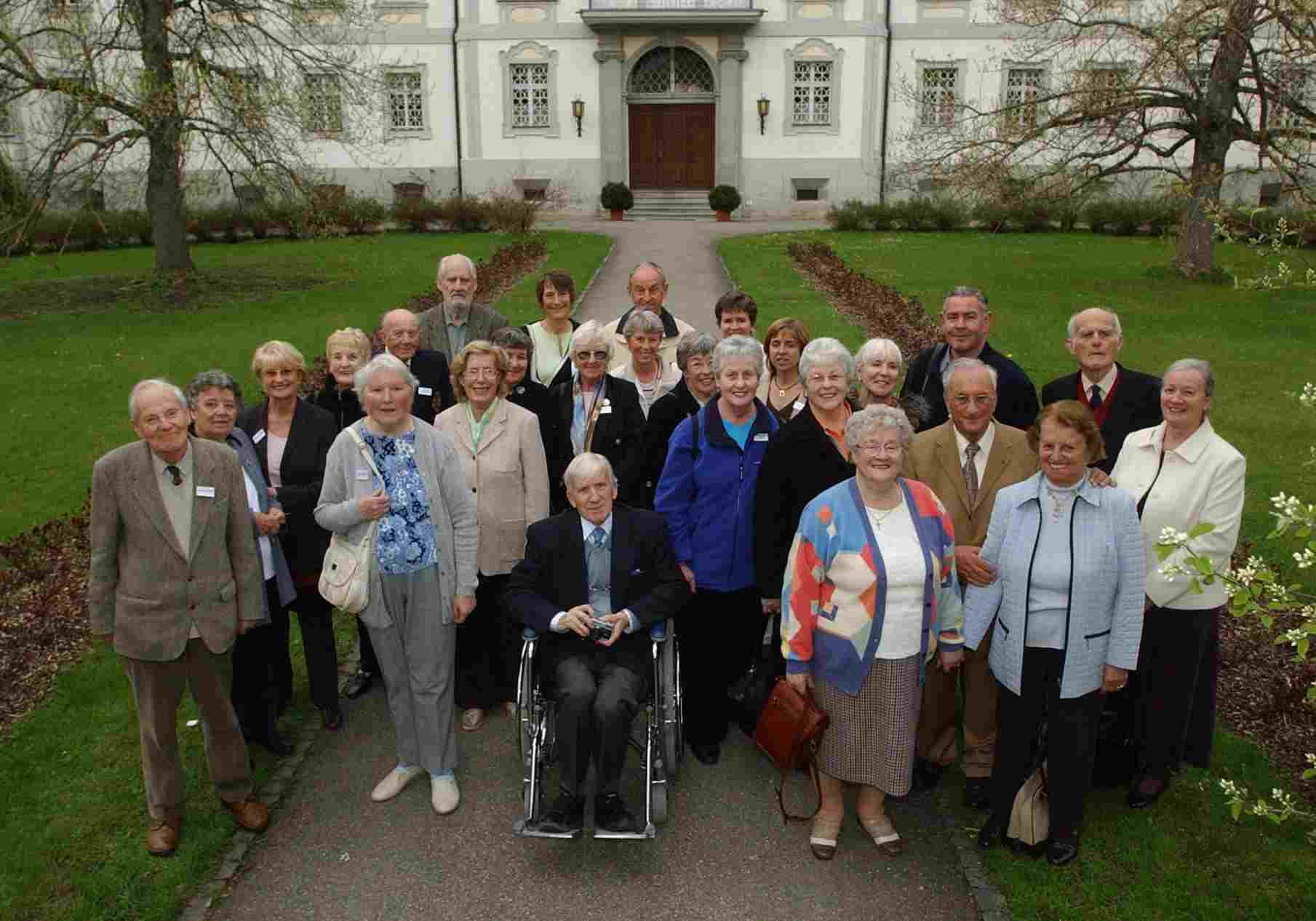 | |||||||||||||||||||||||||||||||||||||||||||||||||||||||||||||||||||||||||
| Internees in Wurzach Internment Camp (pdf) | ||||||||||||||||||||||||||||||||||||||||||||||||||||||||||||||||||||||||||
| Special cases of Internees in ILAG Wurzach (pdf) | ||||||||||||||||||||||||||||||||||||||||||||||||||||||||||||||||||||||||||
| beginning of page | start | |||||||||||||||||||||||||||||||||||||||||||||||||||||||||||||||||||||||||